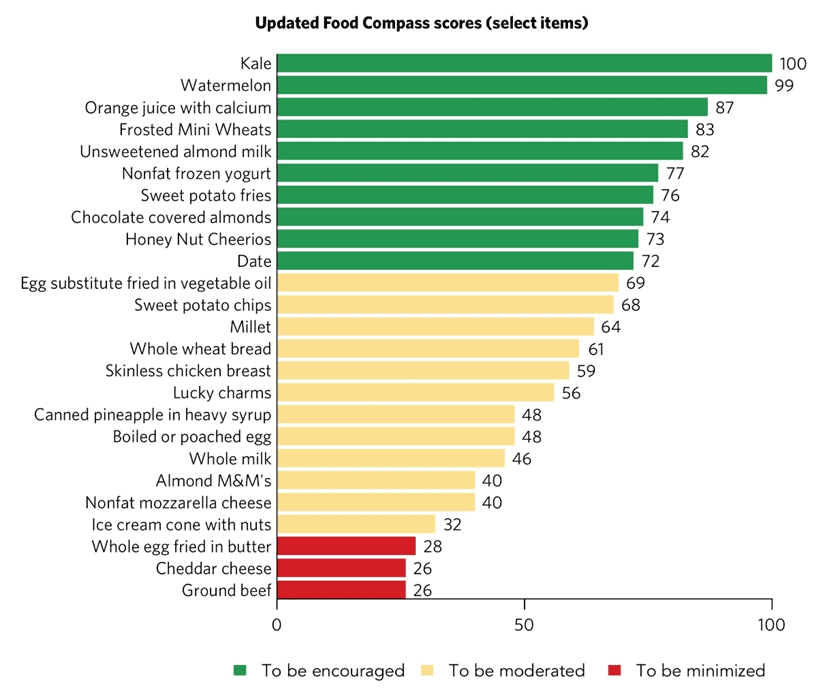How To Navigate Diet And Nutrition Advice
Whole Foods
Everyone claims to have the perfect diet or advises that it’s healthy to eat this food or exclude that food. This can be frustrating and confusing for people that aren’t in the health and nutrition space and don’t understand the broader system. One day butter is bad, and the next, it’s good; meat is good, and meat is bad. You should eat one meal a day; you should eat six meals a day. The contradictory diet advice is endless. In this post we will talk about why that is and how to sift through it using your intuition and common sense.
Conflicting Interests
Unfortunately, like most things in our country, diet advice is heavily influenced by industry, and there is often an agenda behind it. Some historical and recent examples where people were deceived include:
In 1911 Crisco used leftover cotton seeds and created a clear, tasteless, and neutral-smelling seed oil through industrial bleaching, deodorizing, and hydrogenation. They called it shortening or vegetable oil. Clever and aggressive advertising, and no mention of cotton seeds, convinced consumers they didn’t need to understand the ingredients in processed foods as long as those foods came from a trusted brand (2).
In the 1960s, the “Sugar Research Foundation” paid Harvard scientists to refute earlier research showing sugar’s role in heart disease. The scientists ignored the data implicating sugar and concluded that cutting fat out of American diets was the best way to address coronary heart disease. The results were published in the New England Journal of Medicine without disclosure to the industry funding.(1).
The original food pyramid was never intended to make Americans healthy and was instead designed to bolster the sales of the wheat and corn industry. The pyramid's base suggests 6-11 servings of highly processed bread, cereal, and pasta. Given the current obesity and chronic disease epidemic, we know that advice did not age well.
The Tufts’ Food Compass places ultra-processed foods like frosted mini wheats above ground beef—and an egg substitute fried in vegetable oil as healthier than a real egg cooked in butter. The absurdity of this compass and the influence and money from the food industry is on another level. See the full story from the author of “The Big Fat Surprise,” Nina Teicholz, here: https://unsettledscience.substack.com/p/tufts-food-compassits-worse-than
The Tufts’ Food Compass is funded by several companies whose ultra-processed foods are awarded top rankings.
The above-mentioned are only a few of the hundreds of examples where money, profits, and ulterior motives influence scientists, doctors, and government agencies to mislead the public. Today, there is even more confusing and conflicting information regarding diet thanks to social media and the proliferation of “influencers” who tend to promote ideologies based on their beliefs. For example, becoming entrenched in the opinion that cow farts contribute to global warming and pushing a vegetarian or vegan diet.
To help make sense of it all you need a process and I found the below one to work well for me. You can adopt it or create your own.
My Filter
Anytime I evaluate nutrition or diet advice, I run it through my filter. I don’t care if so and so is an “expert.” It’s still going through the filter. I’ve seen too many “experts” giving advice influenced by the people and industries that pay their salaries or fund their research. I use the following criteria to build my filter:
It’s quite easy to buy yourself an “expert” who will say whatever you want.
Is the advice intuitive, and does it make sense on the surface? All our intuitions will be calibrated slightly differently based on our life experiences, but we must start here. The more extreme claims can be filtered out with no further work necessary. For myself, the claim that cereal would be healthier than an egg requires no further investigation. Intuitively it makes no sense that a whole food from nature would be less healthy than an ultra-processed factory food.
What is the current system setup for? Who has the most to lose/gain if things were to change or remain the same? Our current system is dominated by factory farming and all the accompanying industries, such as chemical herbicides, pesticides, and fertilizers. If you go into a grocery store, most of the space is taken up by packaged food. About half the permitter is for whole foods, while the other half is baked goods, alcohol, and cash registers. From my visual estimations, the packaged and processed food industry has the most to lose.
Who stands to profit from the advice? Follow the money. Whenever someone starts with “experts recommend,” I immediately want to know the following. Who paid for the research? Does this expert have conflicts of interest - like working for the USDA while serving in an advisory position for a prominent packaged food manufacturer? Are they a doctor that receives bonuses for prescribing more pharmaceuticals and has a place on the board of directors for that pharmaceutical company? It's worse than you could have imagined when you start peering behind the curtain.
Is it ancestrally consistent, or is it novel? If I have any doubts or questions, this is my litmus test. What did our ancestors have access to for hundreds of thousands of years? Were our ancestors able to take enormous quantities of seeds, process, bleach, and deodorize them to get seed oils? Hell no! Were our ancestors able to hunt, kill, and consume large mammals since the dawn of time? They sure were.
Follow the money.
Conclusion
It’s not my intention to tell anyone how to think or eat. I only hope to give you some perspective and ideas for creating your filter and call attention to the many competing interests. My biggest takeaway is not blindly trusting anyone giving diet and nutrition advice. You should have your own filter to examine the information being presented.
If you don’t care or don’t have time, I would tell you to eat whole foods that would have been available to our ancestors. This stuff doesn’t have to be complicated, and you don’t need a master’s degree in nutrition or a Ph.D. in chemistry to figure it out. Next week we’ll get into some of the nuances of the advice to eat whole foods.
Resources
https://jamanetwork.com/journals/jamainternalmedicine/article-abstract/2548255
https://unsettledscience.substack.com/p/tufts-food-compassits-worse-than




